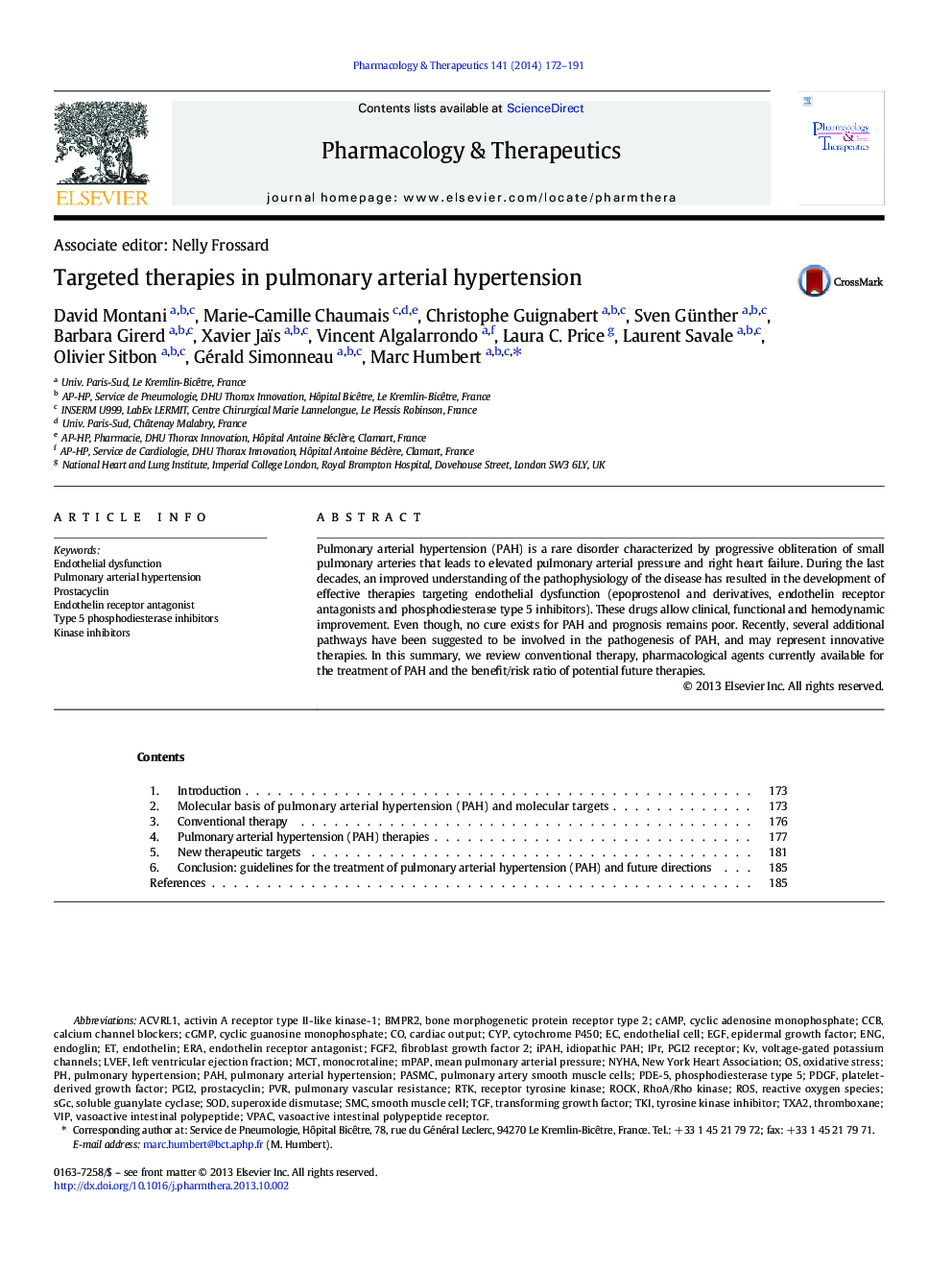| Article ID | Journal | Published Year | Pages | File Type |
|---|---|---|---|---|
| 2563147 | Pharmacology & Therapeutics | 2014 | 20 Pages |
Pulmonary arterial hypertension (PAH) is a rare disorder characterized by progressive obliteration of small pulmonary arteries that leads to elevated pulmonary arterial pressure and right heart failure. During the last decades, an improved understanding of the pathophysiology of the disease has resulted in the development of effective therapies targeting endothelial dysfunction (epoprostenol and derivatives, endothelin receptor antagonists and phosphodiesterase type 5 inhibitors). These drugs allow clinical, functional and hemodynamic improvement. Even though, no cure exists for PAH and prognosis remains poor. Recently, several additional pathways have been suggested to be involved in the pathogenesis of PAH, and may represent innovative therapies. In this summary, we review conventional therapy, pharmacological agents currently available for the treatment of PAH and the benefit/risk ratio of potential future therapies.
